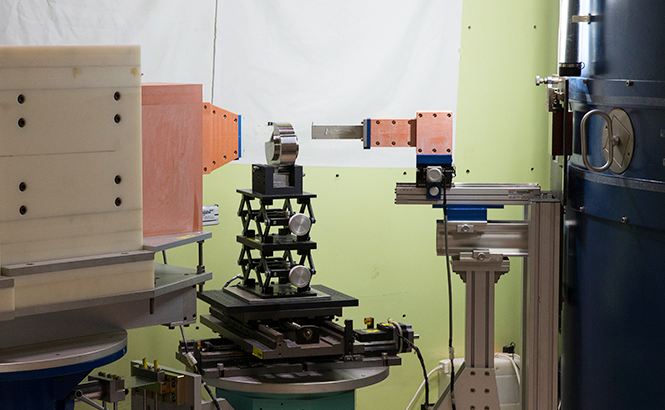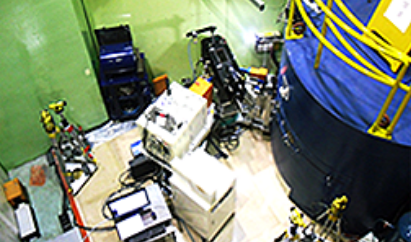Neutron Residual Stress Instrument

Neutron Residual Stress InstrumentRSI Residual Stress Instrument
- The Residual Stress Instrument (RSI) investigates lattice deformation to measure and analyze residual stress, which is a major cause of fatigue and rupture risk. This instrument is used to test the stability and durability of structural materials for nuclear power plants, automobiles, vessels, and aircraft, for example. The RSI of HANARO, in particular, is capable of examining steel plates that measure up to 80mm in thickness—which is thicker than what any other existing instrument in the world can examine. The RSI research group of HANARO has made great contributions to improving the structural safety of large-scale vessels, as a result of a joint research project with POSCO Technology Research Institute, by reducing defects in welded parts and enhancing the properties of hot-rolled steel plates used especially in mega container vessels and oil tankers.
Contact information
-
Wanchuck WooPrincipal researcherNeutron Science Division+82-42-868-4646
-
Hobyung ChaeSenior researcherNeutron Science Division+82-42-866-6135
Specifications

| Part | Characteristic |
|---|---|
| Beam characteristics |
|
| Monochromator |
|
Sample environments
| Detector | position-sensitive, coverage 4° 100 x 200 mm2 |
|---|---|
| Sample stage | X,Y ∓ 120, Z ∓ 45 mm. Ω ∓ 180° |
| Sample size | Max. 300 x 300 x 300 mm3, up to 150 Kg |
| Tensile & Temperature | Up to 20 KN, -80℃ ~ 600℃ |
Research areas
- Nuclear power plant
Residual stress determination in a dissimilar weld overlay pipe by neutron diffraction
- Automobile and aerospace
Strain-stress partitioning in dual-phase steels during uniaxial loading
- Steels and shipbuilding
Through-thickness distribution of residual stress in 70mm thick welds
Applicable areas
- Residual stress measurement of scattering volume
- Experiments on in-situ diffraction during deformation
Representative achievements
- World's highest neutron penetrability (penetrate 80 mm thick steel)
- Measurement of residual stress in thick plate welds for an 18,000 TEU container ship made by POSCO and design considerations based on that information
